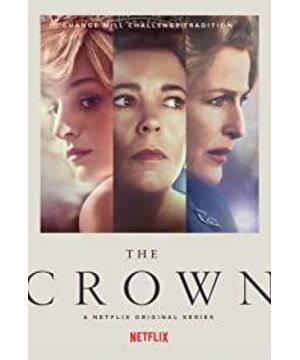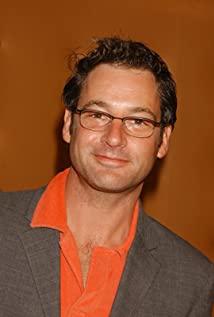The plot of "British Stands First"
You should know that the new generation of Britons born after the 1990s are very unfamiliar with what Charles, Prince of Wales does, especially to overseas audiences. In fact, in addition to appreciating "The Crown" from the perspective of snooping on the privacy of the royal family, the historical interpretation of the so-called "British perspective" can also be seen from the narratives of multiple episodes.
Just as Chinese people have watched American movies for a long time, they naturally cannot help but be led by their value orientation. As the most influential British film and television masterpiece since Harry Potter, the narrative of "The Crown" is purely based on "British position comes first" is also easy to make the audience misunderstand history.
Take "Gold Stick", the first episode of season four, as an example, which depicts the assassination of the Earl of Mountbatten (Louis Mountbatten) on holiday in Malermo, County Sligo, northwest Ireland. If viewers watch it over the past three seasons, their understanding of the Earl of Mountbatten is probably "Prince Charles' closest elder." Even in this episode, the assassination of the Earl of Mountbatten is not entirely the subject of the story, but instead reinforces Prince Charles' alienation from the royal family.
In this case, it is natural that the play will not talk about the reasons for the assassination of Earl Mountbatten, and the Irish Republican Army (IRA) responsible for the assassination has not been able to get a specific presentation. However, screenwriter Peter. Morgan (Peter Morgan)'s choice is reasonable, the conflict between Britain and Ireland is not the main body of the story of "The Crown", if the historical background of the "Northern Ireland problem" is explained through this episode, the story will be completely deviated from the main line.
The screenwriter also knows that once the identity and position of the IRA is strengthened, whether it is given a positive or negative description, I am afraid that it will add unnecessary controversy to the work. But for audiences outside the UK and Ireland, there are certain barriers to understanding this narrative.
Great Britain, Ireland and Northern Ireland
The starting point of the Northern Ireland issue is undoubtedly the Plantation of Ulster in 1609, when the royal family sent English and Scottish Protestants to Ars in northern Ireland in order to effectively assimilate Ireland. Territory occupies land to live. The land of the Irish Catholics who formerly lived there was seized and bloody slaughtered, laying the foundation for ethnic rivalry.
The opposition between Protestants and Catholics has been stalemate here for hundreds of years. Although the Irish region has called for the establishment of a country independent from the United Kingdom as early as the end of the 18th century, the conflict between restricted religious factions has never been achieved. Protestants in Northern Ireland have their roots in the UK, so they are more identified with the UK. But Catholics across the island of Ireland are more proud of their Irish identity, but they have long been oppressed by British power and are regarded as a lowly race, and the use of Irish (also known as Gaelic) is even forbidden.
Between 1845 and 1852, the Irish famine caused by the wrong policies of the British Whig government killed 1 million people from starvation, forced a million people to leave Ireland (most chose to migrate to the United States), and reduced the number of people across the country. a quarter of the population. But the crisis has also deepened Irish national identity and dissatisfaction with the British government.
At the end of the 19th century, the Irish independence movement rose. At the beginning of the 20th century, after the leadership of several revolutionary pioneers, the British government was forced to agree to the independence of Ireland. However, the Anglo-Irish Treaty proposed by the United Kingdom only allowed the 26 counties of Ireland to be established independently; Remain in the UK to form "Northern Ireland".
Supporters and opponents of the treaty set off a nearly one-year-long Irish civil war, and the revolutionary leader Michael B. Collins (Michael Collins) was assassinated in August 1922, and his deeds can be seen in the movie "The True Color" (Michael Collins, 1996).
The 'Vengeance' of Irish Catholics
The author once had a chat with a bus driver in Dublin, and he eloquently said: "Britain gives you home on the surface, but it insists on putting up a flag in your toilet, which means that Ireland does not allow complete independence." But for Protestants in Northern Ireland, the fact is not so simplified. The population is actually larger than the local Catholics. From the standpoint of Protestants, it is of course impossible to choose to join Ireland, which is mainly composed of Catholics.
The Irish Civil War ended with the victory of the National Army, which supported the Treaty, and the IRA, which was opposed to the Treaty, lost power, but remained underground. In the late 1960s, Northern Irish Catholics were influenced by Martin. Luther. Inspired by the civil rights movement initiated by Dr. Martin Luther King, Jr., he was dissatisfied with the British discrimination against Catholics in housing, suffrage and work rights, so he started a small peaceful demonstration in 1969 . However, his actions were met with violent countermeasures on behalf of the British royalist forces.
On January 30, 1972, Catholics held a peaceful march in the Bogside area. Unarmed, they were brutally murdered by paratroopers stationed in London, killing 14 people on the spot, known as "Bloody Sunday" in history. Catholics did not see the British military as an enemy at first, but after this incident, the IRA gained support from more radical young people. The "Republican faction", which advocated the reunification of the North and the South, and the "United faction" (also known as the "royalist faction"), which supported British sovereignty, both went to armed confrontation.
The background of the assassination of Earl Mountbatten is when the two parties intensified. As stated in the play, the situation at the time did not actually encourage the Earl of Mountbatten to take a holiday at the Northern Ireland border, and the lax security of the IRA gave the IRA an opportunity. Thomas. McMahon (Thomas McMahon) planted a bomb while the ship was unattended early in the morning, which was uploaded by the Earl of Mountbatten and his family and detonated, killing him, his grandson, his mother-in-law and the Irish crew.
The then deputy leader of Sinn Féin, who has close ties to the Irish Republican Army, Gary Gary. Gerry Adams said the IRA's murder of Earl Mountbatten was "exactly what Mountbatten did to others all his life". From the British point of view, its action was an unbearable act of terrorism, but for Irish Catholics who had been brutally oppressed by Britain for hundreds of years, it was a triumphant revenge.
The Unmade History of 'The Crown'
In 2012, Queen Elizabeth II met with former IRA commander Martin McGuinness in a sign of reconciliation. In 2015, Prince Charles also visited the site where his close relative, the Earl Mountbatten, was assassinated. The current Irish Republican Army has long given up armed resistance and has entered the system one after another.
"The Crown" revisits the assassination of Earl Mountbatten, and it is believed that it will not be impossible to touch the follow-up development of the Northern Ireland issue in the next few seasons. The director tried to present an objective incident in this episode, which was considered a proper handling of the incident, but in the eyes of viewers who were not familiar with the historical context, it was inevitable that they would feel confused.
In fact, during the famous Irish hunger strikes of 1980 and 1981, Margaret Thatcher, known as the "Iron Lady", could be seen as a reaction to the assassination of Earl Mountbatten. Ignoring the hunger strike by the CCP political prisoners and the pressure from human rights groups around the world, she starved to death ten prisoners, including the Republican Army commander Bobby. Bobby Sands. His experience was filmed in the film "The Hunger Manifesto" (Hunger, 2008).
The follow-up British countermeasures against the Irish Republican Army were not mentioned in "The Crown", but in the portrayal of Mrs Thatcher's personality, you can also see the screenwriter Peter. Morgan's observations of her (mostly negative descriptions). As Prince Harry said, the outline of historical events can be roughly understood through "The Crown", but it cannot be completely believed. However, Peter. Morgan's current translation skills and scales of historical events are still within the scope of emotion and have a high ornamental value.
As an understanding of British culture and even the modern history of the twentieth century, The Crown provides many instructive entry points. Many episodes not only chronicle reactions to current events, but often foreshadow future events. The timeline of the fifth season is expected to be based on the 1990s. Whether Hong Kong's return to China will be presented, and from what historical perspective, is also worthy of the expectations of royal fans, history fans and drama fans.
View more about The Crown reviews











